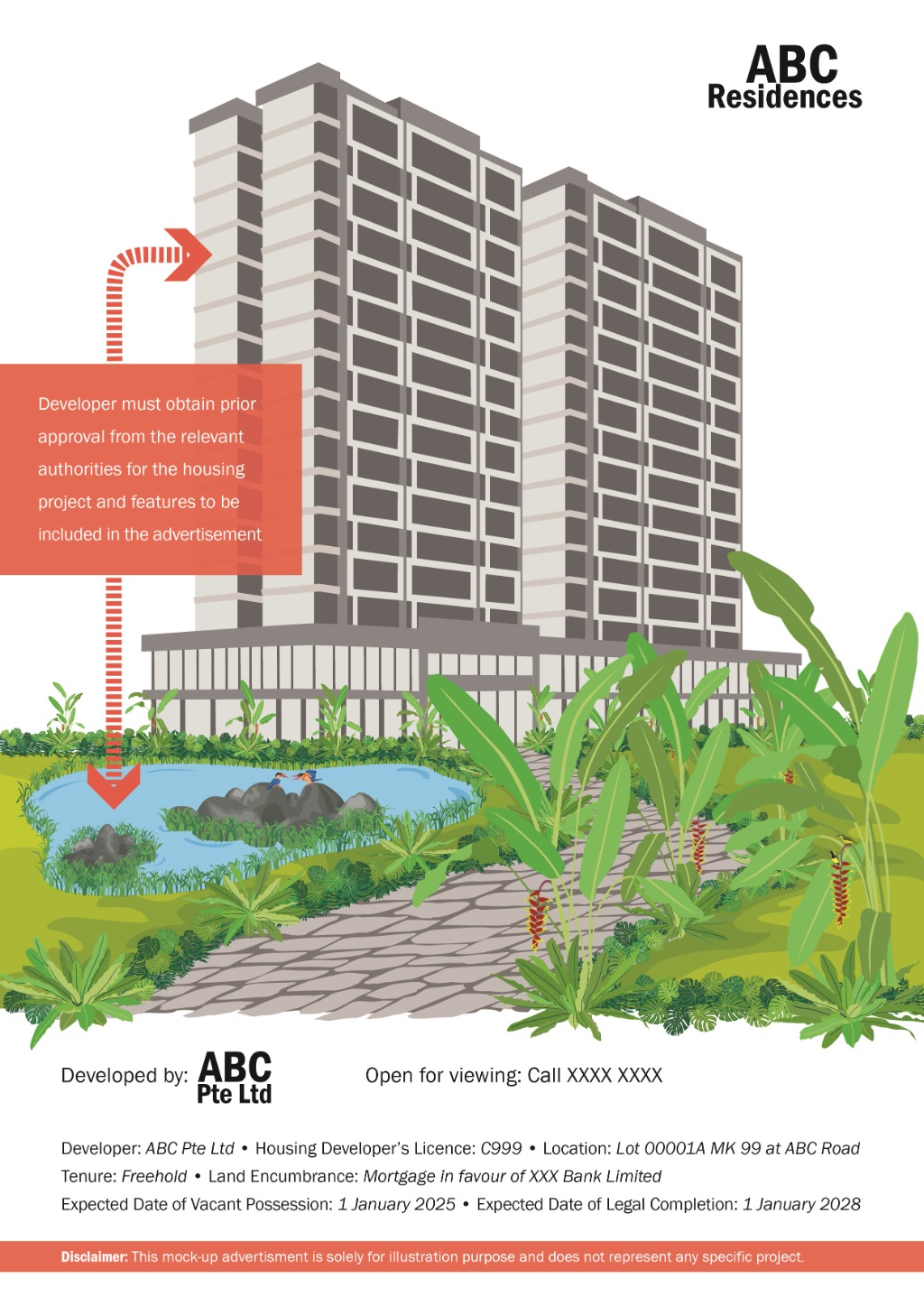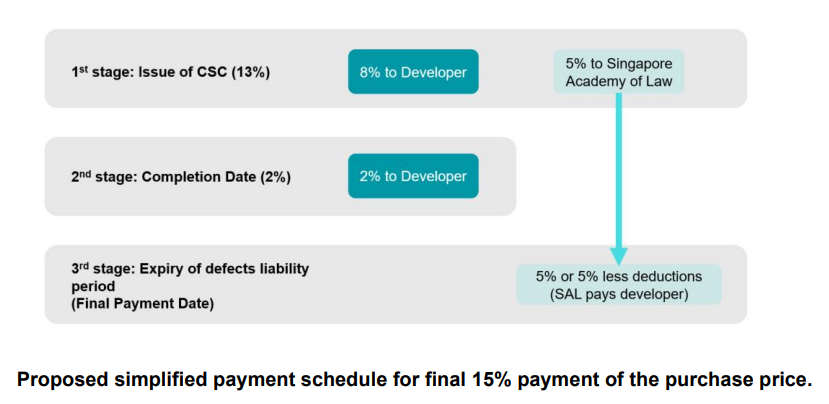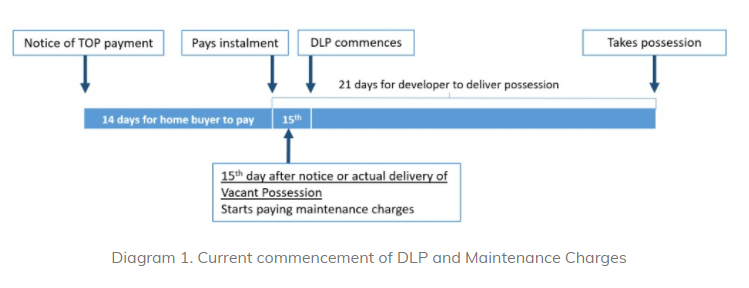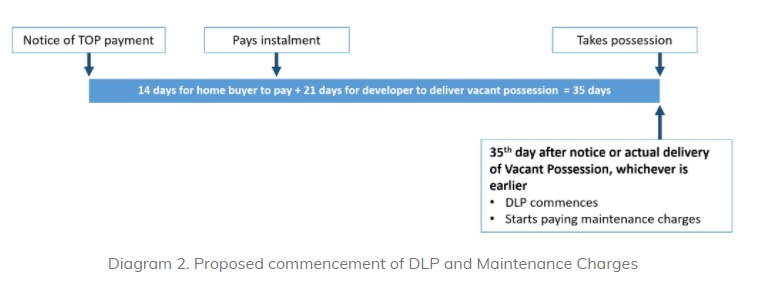The Urban Redevelopment Authority (URA) is asking the public for comments and feedback on proposed amendments to Housing Developers Rules (HDR) such as what they should (or should not) include in advertisements and purchasing terms.
The purpose of the HDR is to protect home buyers’ interests by imposing developers requirements and standard contracts, especially for the sale of uncompleted private residential properties.
So, to ensure continued protection, the public consultation comes in a form of a survey. In summary, the key proposed amendments are as follow:
A. Information on advertisements
1. Developers may sometimes include features like vehicle pick-up/drop-off point, landscaping and water features in advertisements. With the proposed amendment, they must obtain prior approval from the relevant agencies before including them in advertisements.
2. Developments that obtained their Temporary Occupation Permit (TOP) or Certificate of Statutory Completion (CSC), are required to state the TOP or CSC date in the advertisements. This will allow home buyers to know when they can move into their units.
3. Information such as land encumbrance (eg. mortgage in favour of so-and-so bank) is usually not relevant to prospective home buyers. So these can be left out of advertisements.

B. Provide more information on the housing project and developer’s track record before accepting the booking fee
4. Developers will have to provide more information on their track record and past projects, including their Construction Quality Assessment System and Quality Mark scores, and Green Mark certification for completed projects in the past 5 years.
5. Developers to provide more details in their plans, including additional information on the location of key communal facilities across the site and storey plans. On unit floor plans, they are required to mark out void areas, explain abbreviations used, etc. for buyers’ reference.
C. Provide information on ground rent and reversionary owner
6. Developers will have to make known to buyers if the 99-year-leasehold units they’re selling is subject to ground rent if the land they’re building the property on belongs to a landowner (ie. reversionary owner) with freehold or 999-year leasehold land.
If this is the case, the developer must provide information on who this landowner is and the ground rent payable in the Option to Purchase and Sales and Purchase Agreement.
D. Provide a simplified payment schedule
7. Usually, the final 15% of the property’s purchase price varies depending on whether the CSC or Completion Date of the sale and purchase happens first.
The proposed amendment is to give home buyers just one sequence flow in this payment schedule, such that payment must be made at the CSC stage (ie. 8% to developers and 5% to be held by the Singapore Academy of Law). After that, 2% of the final payment goes to the developer when the Completion Date payment notice is served after the CSC.

E. Later commencement of Defects Liability Period (DLP) and home buyer’s liability for maintenance charges
8. The current Sales and Purchase Agreement usually includes a 1-year DLP after the 15th day of receiving notice of TOP payment or the actual date of unit delivery, whichever is earlier.

With the proposed amendment, the revised DLP and home buyer’s liability for maintenance charges will commence later on the 35th day after receipt of notice of TOP payment, or the actual unit delivery date, whichever is earlier.

This 35th day takes into account the 14 days home buyers need to make payment for the instalment due at the TOP stage and the 21 days for developers to deliver vacant possession of the unit upon payment receipt.
F. Reduce threshold for claims for the shortfall in the area
9. When the actual area in the unit falls short of what’s stated in the Sale and Purchase Agreement by more than 3%, the developer currently has to compensate home buyers.
With the proposed amendment, the shortfall is now reduced to 2%, due to advancements in building/construction technology, accuracy and standard of construction.
G. Safeguard home buyers’ interests in relation to changes to approved plans
10. Besides approved building plans, developers are required to build according to scaled unit floor plan and site plan given to home buyers (before they accept the booking fee).
However, should the developer plans to make changes to the unit floor plan or any substantive change to the site plan for common facilities, the developer has to seek consent from home buyers after the Option to Purchase issue date. The developer does not need to (seek consent) if these changes are mandatory due to new requirements compliance by relevant authorities.
H. Enhanced refund coverage in annulment
11. If a Sale and Purchase Agreement is annulled, developers are usually required to refund all instalment payments and any stamp duty paid to the home buyer. However, there are other costs incurred during the purchase. With the proposed amendment, developers will also be required to refund interest paid on loans, loan cancellation charges and legal fees (eg. to their bank), subject to a cap of 15% of the purchase price.
Similar to how rules governing wording in insurance policies are usually enhanced and improved, these 11 proposed amendments to the HDR should provide home buyers (and developers and property agents) better clarity before, during and after the option to purchase, sales and purchase agreement and final payments are made.
Estimated to take around 20 minutes to complete, the feedback form can be found here. You have till 5 February 2022 to give your two cents on their proposed amendments.
–
Will you be participating in the survey? What else do you think URA should include? Let us know in the comments section below or on our Facebook post.
If you found this article helpful, 99.co recommends MND report reveals a summary of Singaporeans’ views on public housing in prime locations and MND survey reveals how the government could regulate prime location HDB flats.
Looking for a property? Find the home of your dreams today on Singapore’s fastest-growing property portal 99.co! If you would like to estimate the potential value of your property, check out 99.co’s Property Value Tool for free. Meanwhile, if you have an interesting property-related story to share with us, drop us a message here — and we’ll review it and get back to you.
The post URA wants property developers to be more transparent, and is asking home-buyers for comments appeared first on 99.co.

